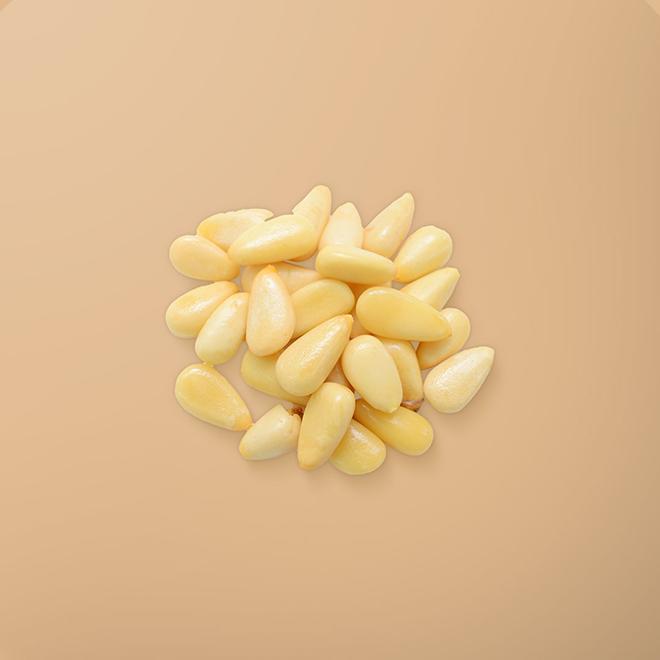Pine Nuts




Pine nuts are the edible seeds of pine trees. They are small, elongated, and ivory-colored. Pine nuts have a rich, nutty flavor and a slightly chewy texture. They are a popular ingredient in many cuisines around the world, and they are often used in pesto, salads, and desserts.
Ancient Greeks and Romans were avid pine nut enthusiasts, incorporating them into dishes like bread, stews, and even desserts. Pliny the Elder even touted their aphrodisiac properties!
Pine nuts are susceptible to rancidity, so prioritize freshness. When buying pine nuts aim for bags packed within the last 6 months. Fresh pine nuts have a pale white or cream color. Avoid yellow or discolored nuts, indicating age or improper storage.
Keep pine nuts in an airtight container in a dark and cool place. They can be stored for up to 6 months but best to use them up within 3 months.
Avoid storing pine nuts in the refrigerator or freezer. Storing pine nuts in the refrigerator or freezer can cause them to lose their flavor and texture.
You can easily make classic pesto if you have leftover pine nuts and need to use them up. All you have to do is blend Parmesan cheese, olive oil, basil leaves and pine nuts. Once the mixture is smooth, season it with salt and pepper and enjoy.
Pine nuts are like chameleons, they are so versatile that you can use them in pretty much any dish. Use them as sprinkles, in granola bars, make nut butter out of them or simply incorporate them into your next batch of chocolate cookies for an extra crunch.
Pine nuts were so prized by the ancient Romans that they were used as currency.
Pine trees can take anywhere from 10 to 20 years to produce their first pine cones and a single pine cone can contain hundreds of pine nuts.
They are harvested by hand, which makes them a labor-intensive and expensive food.
If you are using pine nuts in a sauce or pesto, add them at the end of cooking. This will prevent them from becoming too soft.
If you are using pine nuts in a dish that is going to be baked, sprinkle them over the top in the last few minutes of baking. This will help them to stay crispy.
If you are using pine nuts in a dish that is going to be frozen, toast them before freezing. This will help to preserve their flavor and texture.
Tiny but mighty, pine nuts pack a nutritious punch! They're rich in protein, fiber, healthy fats, vitamins, and minerals, potentially boosting heart health, blood sugar management, brain function, and digestion.
While pine nuts offer substantial health benefits, moderation is key. They are calorie-dense due to their fat content, so enjoy them in reasonable portions. Choose raw or roasted pine nuts without added salt or oil for optimal health benefits.
Corrections or improvements? Email us at
content@sidechef.com